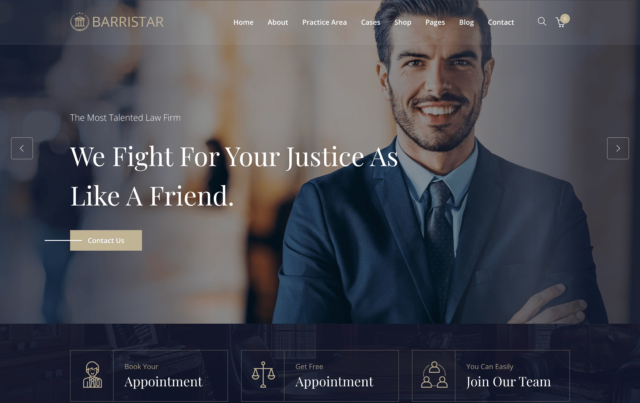Attorney Advertising Rules for the State of South Carolina
Read for more information on the rules for online advertising for South Carolina attorneys
South Carolina Attorney Advertising Rules: Comprehensive Overview
Attorneys practicing in South Carolina must adhere to specific advertising regulations outlined in the South Carolina Rules of Professional Conduct, particularly Rules 7.1 through 7.5. These rules ensure that legal advertising is truthful, non-misleading, and upholds the integrity of the legal profession. Below is a detailed overview of the key provisions governing attorney advertising in South Carolina.
Rule 7.1: Communications Concerning a Lawyer’s Services
- Prohibition of False or Misleading Communications:
- Lawyers must not make false or misleading communications about their services.
- A communication is false or misleading if it contains a material misrepresentation of fact or law, or omits a fact necessary to make the statement considered as a whole not materially misleading.
- Avoiding Unverifiable Claims:
- Attorneys should not make claims that cannot be substantiated or verified.
- Comparisons with other lawyers’ services are prohibited unless they can be factually substantiated.
Rule 7.2: Advertising
- Permissible Advertising Methods:
- Lawyers may advertise their services through written, recorded, or electronic communication, including public media.
- All advertisements must comply with Rule 7.1.
- Payment for Recommendations:
- Lawyers shall not give anything of value to a person for recommending the lawyer’s services, except that a lawyer may:
- Pay the reasonable costs of advertisements or communications permitted by these rules.
- Pay the usual charges of a legal service plan or a not-for-profit lawyer referral service.
- Pay for a law practice in accordance with Rule 1.17.
- Refer clients to another lawyer or a nonlawyer professional pursuant to an agreement not otherwise prohibited under these Rules that provides for the other person to refer clients or customers to the lawyer, if:
- The reciprocal referral agreement is not exclusive.
- The client is informed of the existence and nature of the agreement.
- Lawyers shall not give anything of value to a person for recommending the lawyer’s services, except that a lawyer may:
- Mandatory Disclosures:
- Any communication made pursuant to this rule shall include the name and office address of at least one lawyer or law firm responsible for its content.
- Contingency Fee Advertisements:
- Advertisements indicating that no fee will be charged if no recovery must conspicuously state if the client will be responsible for costs or expenses regardless of the outcome.
- Referral Practices Disclosure:
- Lawyers or law firms that advertise a concentration in particular fields of law and refer the majority of such cases to other attorneys must clearly state:
- “Most cases of this type are not handled by this firm, but are referred to other attorneys.”
- Or, if applicable: “While this firm maintains joint responsibility, most cases of this type are referred to other attorneys for principal responsibility.”
- Lawyers or law firms that advertise a concentration in particular fields of law and refer the majority of such cases to other attorneys must clearly state:
Rule 7.3: Direct Contact with Prospective Clients
- Solicitation Restrictions:
- A lawyer shall not solicit professional employment from a prospective client by in-person, live telephone, or real-time electronic contact when a significant motive is the lawyer’s pecuniary gain, unless the person contacted is:
- A lawyer.
- Has a family, close personal, or prior professional relationship with the soliciting lawyer.
- A lawyer shall not solicit professional employment from a prospective client by in-person, live telephone, or real-time electronic contact when a significant motive is the lawyer’s pecuniary gain, unless the person contacted is:
- Prohibited Solicitations:
- Solicitation is prohibited if:
- The prospective client has made known a desire not to be solicited.
- The solicitation involves coercion, duress, or harassment.
- Solicitation is prohibited if:
- Required Disclosures:
- Written, recorded, or electronic solicitations must include the words “Advertising Material” on the outside envelope and at the beginning and end of any recorded or electronic communication, unless the recipient is a lawyer or has a prior relationship with the lawyer.
Rule 7.4: Communication of Fields of Practice and Specialization
- Stating Practice Areas:
- Lawyers may communicate the areas of law in which they practice.
- Claims of Specialization:
- Lawyers shall not state or imply they are certified as a specialist in a particular field of law, unless:
- They have been certified by an organization approved by an appropriate authority or accredited by the American Bar Association.
- The name of the certifying organization is clearly identified in the communication.
- Lawyers shall not state or imply they are certified as a specialist in a particular field of law, unless:
- Mandatory Disclaimer:
- Communications indicating specialization must include the disclaimer: “The South Carolina Supreme Court licenses all lawyers in the general practice of law. The court does not license or certify any lawyer as an expert or specialist in any particular field of practice.”
Rule 7.5: Firm Names and Letterheads
- Use of Firm Names:
- Firm names, letterheads, and other professional designations must not be misleading.
- Trade Names:
- Use of trade names is permissible if they do not imply a connection with a government agency or with a public or charitable legal services organization and are not otherwise in violation of Rule 7.1.
- Names of Deceased or Retired Partners:
- The name of a deceased or retired partner may be used in a firm name if the use is consistent with local custom and not misleading.
- Public Office Restrictions:
- Lawyers holding public office shall not be included in the firm name or communications during any substantial period in which they are not actively practicing with the firm.
- Jurisdictional Limitations:
- Use of Trade Names:
- Trade names must not be misleading or suggest affiliations with government agencies or nonprofit organizations unless those connections are accurate and disclosed.
- Use of Trade Names:
Record-Keeping Requirements
-
- Retention of Advertising Records:
- Attorneys must retain copies of all advertisements for at least six years from the date of their last dissemination.
- These records must include when and where the advertisement was published or broadcast, along with any supporting documentation.
- Digital Advertising Records:
- For online advertisements, lawyers should store copies in a durable and retrievable format. This includes websites, social media ads, and email communications.
- Retention of Advertising Records:
Specific Rules for Online and Digital Advertising
Social Media and Websites
-
- Applicability of Rules:
- The South Carolina Rules of Professional Conduct apply equally to digital platforms, including websites, social media posts, and online ads.
- Transparency in Testimonials:
- Client testimonials or endorsements must not create unjustified expectations or imply guaranteed outcomes.
- Advertisements using testimonials must include disclaimers clarifying that outcomes vary based on individual case circumstances.
- Applicability of Rules:
Video and Audio Advertisements
-
- Use of Dramatizations and Actors:
- Videos and audio ads featuring actors or dramatizations must clearly disclose these elements, such as with a statement, “This is a dramatization. Not an actual client or case.”
- Use of Dramatizations and Actors:
Enforcement and Compliance
Oversight by the South Carolina Supreme Court Office of Disciplinary Counsel
-
- All attorney advertisements are subject to review and enforcement by the South Carolina Supreme Court Office of Disciplinary Counsel to ensure compliance with the rules.
Consequences of Non-Compliance
-
- Attorneys found to violate South Carolina’s advertising rules may face disciplinary actions, including:
- Public reprimands for minor infractions.
- Fines, suspension, or disbarment for severe or repeated violations.
- Attorneys found to violate South Carolina’s advertising rules may face disciplinary actions, including:
Seeking Advisory Opinions
-
- Attorneys unsure about compliance can seek advisory opinions from the South Carolina Bar Ethics Advisory Committee. This proactive step helps ensure adherence to advertising rules and prevents potential violations.
Additional Considerations
Contingency Fee Advertisements
-
- Advertisements referencing contingency fees must clearly state whether clients are responsible for court costs and other expenses, regardless of the case outcome.
Avoiding Misleading Practices
-
- All advertisements must accurately represent the attorney’s services, qualifications, and experience. Misleading statements or implications are strictly prohibited.
Referral Practices Disclosure
-
- Attorneys who frequently refer cases to other lawyers must clearly disclose this practice in their advertisements, along with information about joint responsibility, if applicable.
Conclusion
South Carolina’s attorney advertising rules, outlined in Rules 7.1 through 7.5 of the South Carolina Rules of Professional Conduct, are designed to promote ethical and transparent advertising practices. These regulations apply to all forms of advertising, including print, digital, and direct solicitations, ensuring that communications remain truthful and non-deceptive.
Adhering to these guidelines not only helps attorneys comply with ethical standards but also builds trust with prospective clients. Attorneys seeking clarification or assistance can consult the South Carolina Bar Ethics Advisory Committee or the Office of Disciplinary Counsel to ensure their advertising practices meet state requirements.
Our marketing packages include the following
Search Engine Optimization
Paid Search Management
Legal Content Development
Website Design
Live Chat
Social Media Management









